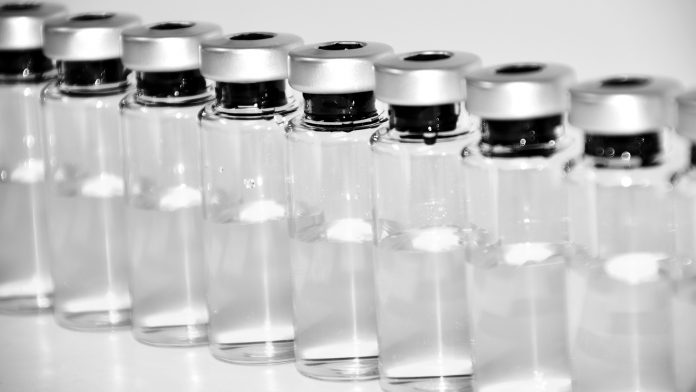
Health Europa discusses the role of vaccines in immunising Europeans, the EVAP, and the World Vaccine Congress Europe to be held in Lisbon on 29-31 October 2018.
Regarded as one of the most cost-effective healthcare solutions available, vaccinations save millions each year from illness, disability and death. Vaccines which are both safe and effective are available, combatting and protecting against a range of serious diseases, whilst research and development into new vaccines continues.
To date, there are around 20 vaccines which are regularly used across Europe, whilst many innovative vaccines and technologies are being rigorously developed and tested. Vaccines currently used in routine practice protect against:
- Diphtheria;
- Haemophilus influenzae type b (Hib);
- Hepatitis B;
- Human papillomavirus (HPV);
- Influenza;
- Measles and rubella;
- Mumps;
- Pertussis;
- Pneumococcal disease;
- Poliomyelitis;
- Rotavirus;
- Tetanus; and
- Tuberculosis, amongst others.
Here, Health Europa discusses the role of vaccines in immunising Europeans, the EVAP, and the World Vaccine Congress Europe to be held in Lisbon on 29-31 October 2018.
The European Vaccine Action Plan
Despite diversity across Europe’s many health systems, national immunisation programmes are predominantly robust, whilst routine vaccination coverage is high. Immunisation services have not only protected many children, and thus reduced child mortality over the past decades, but continue to explore innovative new vaccines for a range of diseases through R&D.
Adopted unanimously at the 64th session of the WHO Regional Committee for Europe in September 2014, the European Vaccine Action Plan (EVAP) is a roadmap to ensuring heightened protection for the population of Europe from diseases which are preventable through immunisation.
EVAP covers the period 2015-2020 and was drafter in order to offer a regional interpretation of the Global Vaccine Action Plan, as well as working in line with Health 2020 and other regional health strategies and policies.
The European Vaccine Action Plan has several
key objectives:
- For countries to commit to immunisation as a priority;
- For individuals to understand the value of vaccines and national services for immunisation;
- For the benefits of vaccination to be extended to all through custom strategies;
- To highlight that strong immunisation services are integral and form part of an effective health system;
- To ensure that immunisation programmes have sustainable access to funding, as well as being provided with high-quality supply.
Working with member states and key partners, WHO/Europe works to attain the major goals set out in the plan, including: - The elimination of measles and rubella;
- Control over hepatitis B infections;
- To meet vaccination coverage targets, at all administrative levels, throughout Europe;
- Maintenance of the Europe’s poliomyelitis-free status;
- Make evidence-based decisions in regard to the introduction of innovative vaccines; and
- Strengthened financial sustainability for national immunisation programmes.
Ensuring the best healthcare for Europe
Vaccine hesitancy encompasses a delay in acceptance of new vaccines, or their refusal, despite the availability of immunisation services through national initiatives or otherwise. Hesitancy to adopt new vaccines is multifaceted with variations between time, place and vaccines, whilst being formed from concerns around complacency, convenience and confidence.
According to the WHO: ‘Today, nine of every ten children in the [European] region receive at least a basic set of vaccinations during infancy and as a result lead healthier, more productive lives.’ Yet, according to data, also from the WHO, of the 11.2 million children born in 2012 throughout Europe, close to 554,150 did not receive the entire triple dosage vaccination for diphtheria, pertussis and tetanus by the age of one. Furthermore, in 2013, member states reported 31,685 cases of measles, 39,367 cases of rubella, whilst the circulation of the wild poliovirus was detected in the European region.
World Vaccine Congress Europe 2018
The World Vaccine Congress features an exhibition alongside a series of acclaimed conferences. In its 19th year, the World Vaccine Congress will co-feature alongside the 4th World Veterinary Vaccine Congress and the 3rd Immune Profiling World Congress and will bring together experts working with vaccines from across the globe, as well as decision makers.
This edition of the World Vaccine Congress Europe will feature key speakers such as Lord James O’Neil, honorary professor of economics at the University of Manchester, UK, and author of the UK’s ‘Review on Antimicrobial Resistance’, and Ana Maria Henao-Restrepo MD, team leader of implementation research – initiative for vaccine research, World Health Organization.
Offering a range of content, networking and partner opportunities, the World Vaccine Congress Europe will aid the future of vaccine R&D and manufacturing. Running from 29-31 October 2018 in Lisbon, Portugal, the World Vaccine Congress Europe will showcase the entire spectrum of the vaccines industry and those invested in immunisation services.
This article will appear in issue 5 of Health Europa Quarterly, which will be published in May.








